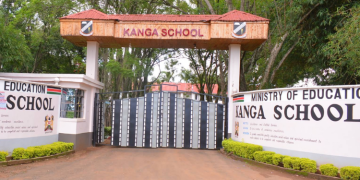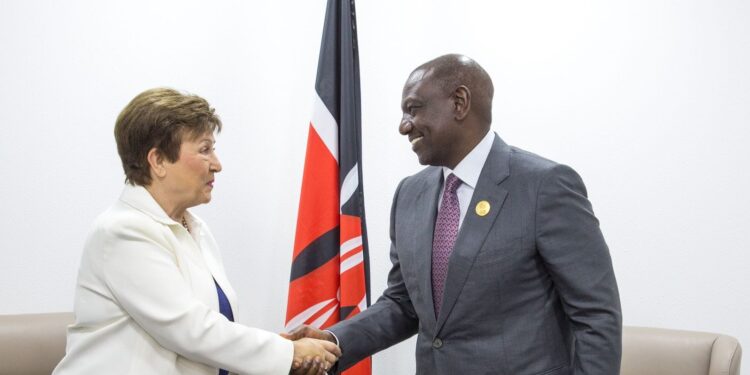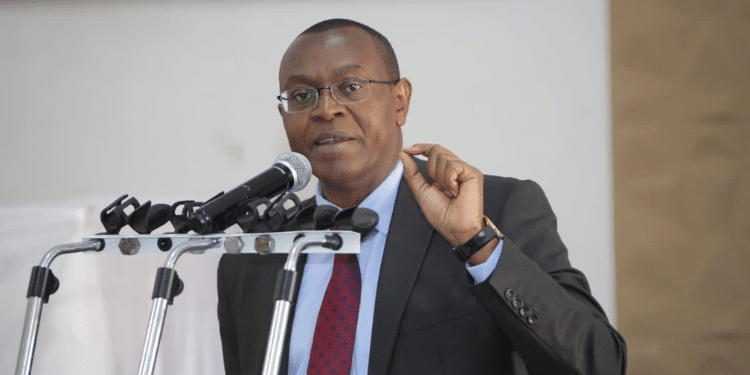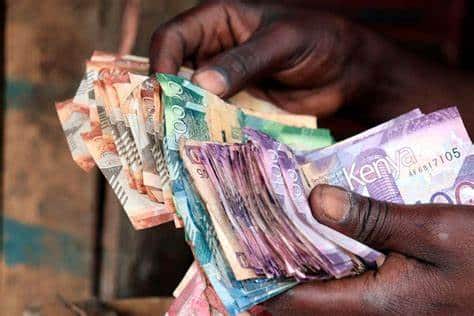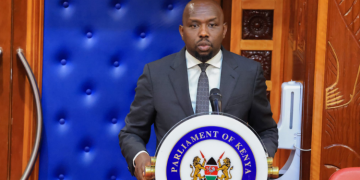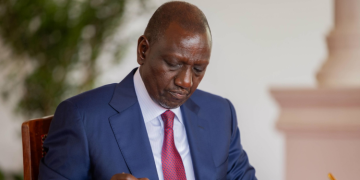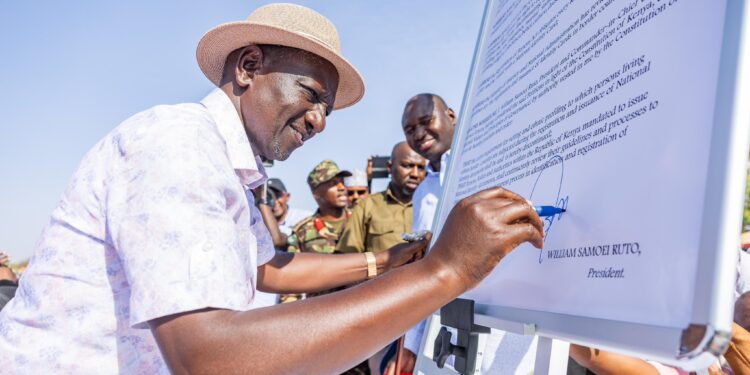Kenya has long been a beacon of hope for individuals fleeing conflict, political instability, and economic hardship in East and Central Africa. With over 823,932 refugees and asylum seekers currently residing within its borders, the country hosts individuals from Somalia, South Sudan, the Democratic Republic of Congo (DRC), Ethiopia, Burundi, and Rwanda. While some view their presence as a strain on local resources, many refugees actively contribute to Kenya’s economy and social fabric through entrepreneurship, labor, and cultural exchange.
We highlight the experiences of eight refugees from the DRC, Burundi, South Sudan, and Rwanda who have rebuilt their lives through informal work, business ventures, and faith-based communities.
Their stories illustrate both the opportunities and challenges of refugee integration in Kenya, including the hurdles they face when accessing mobile money payments and remitting funds to their home countries.
Tales of Refugees living in Kenya
Didier – A Congolese Barber in Nairobi’s Eastleigh
Didier, 29, fled Goma, DRC, in 2019 after armed groups attacked his family. He now runs a barbershop in Eastleigh, serving both locals and fellow refugees.
“Cutting hair is my skill, and Nairobi has given me a chance to use it,” he says. “My customers trust me, and I’m saving money to expand my shop.”
Despite earning around Ksh 1,500 ($10) per day, Didier faces significant challenges, such as harassment from local authorities and the lack of work permits.
Additionally, he struggles with accessing mobile money services due to strict identification requirements that often exclude refugees without national IDs. This limits his ability to save or transfer earnings securely.

Aline – A Burundian Mother Selling Fruits in Mombasa
Aline, 34, fled Bujumbura, Burundi, in 2015 due to political violence. She started selling fruits and vegetables near Likoni ferry in Mombasa.
“At first, I faced discrimination,” she recalls. “But with time, I built relationships, and now I have loyal customers.”
Waking up at 4 AM daily to buy fresh produce, Aline earns about Ksh 2,000 ($13) per day, which supports her children’s education.
Also Read: Govt Clears Air on Refugees Voting in 2027
However, one of her biggest frustrations is the difficulty in sending remittances back to relatives in Burundi.
High transaction fees and limited access to formal banking systems make it nearly impossible for her to support loved ones still living in precarious conditions.
Emmanuel – A South Sudanese Mechanic in Eldoret
Emmanuel, 25, fled Juba, South Sudan, in 2017. In Eldoret, he found work at a garage, fixing motorcycles and cars. “In South Sudan, I was studying engineering,” he explains.
“I never finished school, but my skills help me survive.” Now, Emmanuel earns about KES 15,000 ($100) per month and dreams of opening his own auto repair shop.
Yet, like many refugees, he finds it challenging to open bank accounts or utilize mobile money platforms because of stringent documentation requirements. Without these tools, saving for his dream becomes increasingly difficult.
Claudine – A Rwandan Tailor in Kakuma Refugee Camp
Claudine, 40, arrived in Kakuma Refugee Camp from Kigali, Rwanda, in 2018. Her microloan-funded tailoring shop brings in about Ksh 12,000 ($80) per month, supporting her four children.
“People want to look good, even in the camp,” she notes. “I make clothes that remind them of home.”
While Claudine manages to sustain her business, she struggles to access digital financial services, making it hard for her to save or invest further.
Moreover, remitting money to relatives in Rwanda remains a distant dream due to prohibitive costs and regulatory barriers.
Jean-Pierre – A Congolese Pastor in Nairobi’s Kayole
Jean-Pierre, a 45-year-old Congolese pastor, leads a church in Kayole, Nairobi, serving both refugees and locals.
“People arrive here broken,” he says. “We pray together, help each other find jobs, and rebuild our lives.”
His church also runs a food assistance program, though it struggles with limited funding. One issue Jean-Pierre frequently encounters is the inability of congregants to contribute financially via mobile money platforms due to ID restrictions.
This hampers efforts to sustain community initiatives and provide critical aid.
Grace – A South Sudanese Woman Running a Small Eatery in Kawangware
Grace, 37, fled Bor, South Sudan, in 2016. She runs a small eatery in Kawangware, selling chapati, beans, and tea.
“Cooking is my passion,” she shares. “My customers are a mix of refugees and Kenyans. Some come just to hear my stories about South Sudan.”
Earning about Ksh 3,000 ($20) per day, Grace finds high rent and food prices make saving almost impossible.
Also Read: Inside New Govt Plan to Resettle 700,000 Refugees
Furthermore, the absence of mobile money accounts prevents her from efficiently managing her finances or contributing to family needs back home.
Bosco – A Burundian Boda Boda Rider in Nakuru
Bosco, 27, arrived in Kenya from Burundi in 2017. After struggling to find work, he borrowed money to buy a motorcycle and became a boda boda (motorbike taxi) rider in Nakuru.
“I work 12 hours a day,” he says. “Some days are good, some are not. But at least I have something to do.”
His daily income ranges from Ksh 500 to 2,000 ($3-$13), though he faces risks of accidents, theft, and police harassment.
Another major challenge Bosco encounters is the inability to use mobile money apps effectively due to identity verification issues, complicating his efforts to save or send money abroad.
Marie – A Rwandan Woman Selling Second-Hand Clothes in Gikomba
Marie, 32, fled Rwanda and found opportunity in Gikomba Market, Nairobi’s largest second-hand clothing hub.
“I buy bales of clothes and resell them for a small profit,” she explains. “Business is tough, but it’s better than having nothing.”
Her monthly profit is about Ksh 20,000 ($130), but without Kenyan citizenship, she struggles to access loans and business support programs.
Furthermore, the lack of access to mobile money platforms makes it harder for her to manage her finances or remit funds to family members in Rwanda.
Are refugees Taking Jobs from Kenyans?
The question of whether refugees are displacing Kenyan workers, particularly in informal sectors like hawking, is complex.
While direct data on areas like Kitengela is limited, broader studies provide insights into economic dynamics.
Research shows that refugees in Kenya contribute significantly to the local economy through entrepreneurship, labor, and consumption.
For instance, in Kakuma, refugees have established over 2,500 businesses, contributing $56 million annually to the economy. This has led to a 3% increase in per capita income for locals and a 6% rise in employment.
However, perceptions of competition sometimes create tensions. A study on Nairobi’s business spaces highlighted conflicts between local and Somali refugee entrepreneurs over market access.
Some locals feel refugees have an advantage due to support from NGOs and informal networks.
In counties like Kajiado, Narok, Nakuru and Trans-Nzioa, the expanding economy and available land have so far prevented major economic tensions between locals and refugees. Nonetheless, increased competition in informal trade remains a potential challenge.
Why Refugee integration is important
Refugee integration offers numerous advantages, not only for the refugees themselves but also for the host communities in Kenya.
For refugees, economic independence is a significant benefit as jobs and businesses provide them with the means to become self-sufficient.
This financial autonomy is further supported by the development of community networks that foster social stability and a sense of belonging.
Additionally, many refugees bring valuable skills and expertise to various fields, contributing to the local economy.
Access to education is another critical advantage, as refugee children attending Kenyan schools are given the opportunity to secure better futures for themselves and their families.
For host communities, the integration of refugees can have a transformative impact. Refugees contribute to boosting the local economy through their labor and entrepreneurial ventures, often filling gaps in sectors such as construction, hospitality, and services.
Furthermore, cultural exchange enriches Kenyan society, bringing diversity that enhances both cultural and business interactions. Refugee businesses also play a vital role in increasing trade, creating new markets, and generating opportunities for growth within host communities.
What Kenya should do
To enhance refugee integration, Kenya can adopt several strategic measures that promote inclusivity and mutual benefit.
First, simplifying work permits would allow refugees to register businesses more easily and gain legal employment status, thereby reducing barriers to participation in the formal economy.
Expanding vocational training programs and offering business support, such as micro loans tailored for refugee entrepreneurs, could further empower them to thrive economically.
Community engagement initiatives should also be strengthened to reduce tensions between locals and refugees, promoting mutual understanding and cooperation.
Moreover, establishing clear legal residency pathways, including guidelines for long-term settlement and potential citizenship, would provide refugees with greater security and motivation to invest in their host country.
Another important step involves improving access to mobile money services and remittance platforms by partnering with telecom companies to simplify identity verification processes for refugees.
These policy recommendations, if implemented effectively, could pave the way for a more inclusive and prosperous future for both refugees and host communities in Kenya.
Bigger picture
The stories of Didier, Aline, Emmanuel, Claudine, Jean-Pierre, Grace, Bosco, and Marie demonstrate that refugees are not merely victims—they are workers, entrepreneurs, and community leaders.
Their resilience underscores the fact that migration, when managed well, is an asset rather than a burden.
As Kenya continues to receive more refugees, addressing challenges such as access to mobile money payments, remittance hurdles, and restrictive regulations will be crucial.
By embracing inclusive policies, Kenya has the opportunity to turn migration into a source of strength, benefiting those seeking safety and those offering refuge alike.
Follow our WhatsApp Channel and join our WhatsApp Group for real-time news updates.


